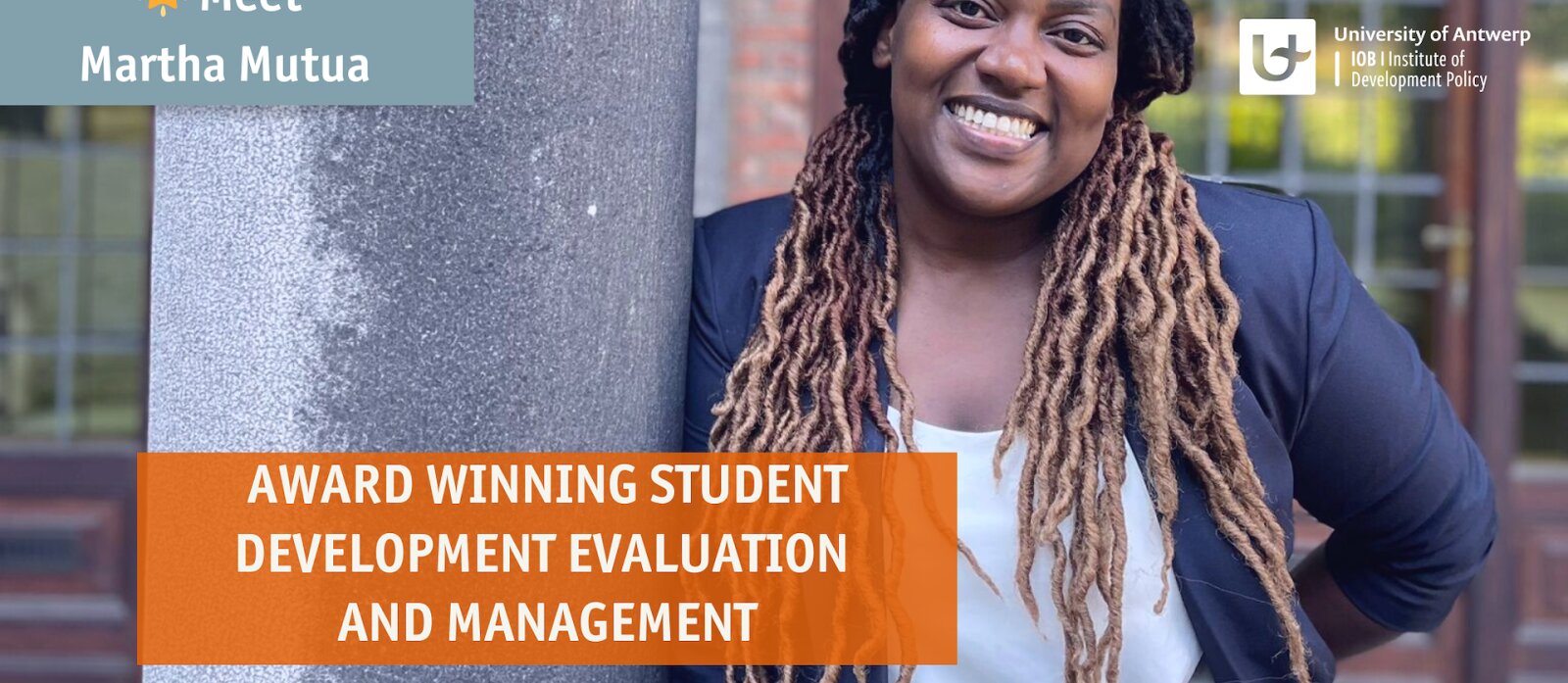- Are you a current or aspiring monitoring and evaluation (M&E) practitioner or researcher looking to complement your practical skills with deeper theoretical knowledge?
- Do you want to sharpen your understanding of the past and present aid policies of multilateral and bilateral donors, and learn how to critically analyze the major aid modalities and instruments deployed by these actors?
In the Advanced Master of Development Evaluation and Management at the University of Antwerp’s Institute of Development Policy (IOB), you’ll assess the strengths and weaknesses of prevailing development paradigms and gain insights on different actors and institutions, from the local to the international level. You will be equipped with multidisciplinary analytical tools that will enable you to confidently conduct academic research on development policies and programmes using qualitative, quantitative, or mixed methods. Electives offered in this programme address some of the most pressing issues in contemporary development practice, including natural resources, migration, gender and development, land access and tenure, climate finance and the ‘greening’ of aid, and access to public goods and services.
About the programme
The programme takes 12 months of full-time study to complete, starting and ending in mid-September.
Students in this advanced master programme choose one of the following two tracks:
- Track 1: National institutions, poverty reduction strategies and aid: Why do some development interventions succeed, while others fail? This track focuses on answering this question and more, by looking at the interactions between national institutions, local politics and external actors. Participants should be interested in macro-level policy research, and aspire to a career in government institutions, donor agencies, NGOs or civil society.
- Track 2: Local institutions and poverty reduction: How do micro-level institutions and processes affect the effectiveness of development efforts, improve livelihoods, and address social exclusion? This track pays special attention to the influence of local contexts on the planning, implementation, and M&E of development interventions. Participants show a strong interest in micro-/meso-level policy research or grassroots organisations, and aspire to a career in civil society, donor agencies, NGOs, or government institutions.
The advanced master programme culminates in a written dissertation that is defended during an oral presentation. Successful completion of the programme leads to the awarding of a Master of Science degree.
Examples of topics studied
- Evaluating the effectiveness of foreign aid programs (e.g., impact of USAID projects in Ethiopia).
- The role of NGOs in poverty alleviation (e.g., microfinance programs in India).
- Assessing healthcare interventions in developing countries (e.g., malaria prevention in Ghana).
- Measuring the success of gender equality initiatives (e.g., women’s empowerment programs in Afghanistan).
- Using qualitative and quantitative research methods to assess development projects.
Real-world applications
- Monitoring & Evaluation (M&E) Specialist → Assessing the impact of development programs and improving effectiveness.
- Development Consultant → Advising governments and NGOs on best practices in program design.
- Impact Analyst in an NGO or International Organization → Measuring project outcomes and ensuring accountability.
Example career path
A graduate might work at the World Bank, evaluating the success of agricultural development projects in Sub-Saharan Africa to ensure that funding is used effectively.
